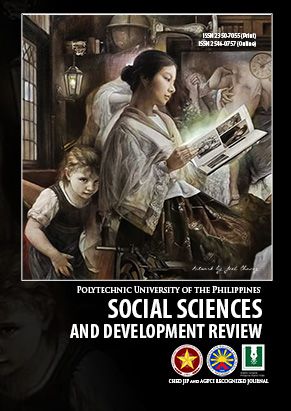Personal Religious Practices of Christian Overseas Filipino Workers in an Islamic Host Country
DOI:
https://doi.org/10.70922/m3cav383Keywords:
Christianity, Labor Migration, OFW Phenomenon, Overseas Filipino Workers, Religion, Sociology of ReligionAbstract
This paper describes the personal religious practices of Christian Overseas Filipino Workers (OFWs) who are situated in an Islamic host country that prohibits non-Moslem religious practices. It also explores how Christian religious practices have evolved and adapted to circumvent religious persecution. Moreover, it discusses the functions that personal religious practices have for OFWs in the Islamic host country.
The study employed qualitative research methods. The researcher interviewed Christian OFWs who are: situated in the Islamic host country as contractual workers for the duration of the study or had previously worked in the Islamic host country and are residing either in another host country or the Philippines during the implementation of the study. Moreover, since the study is situated in an Islamic host country that not only prohibits non-Moslem religious practices but also prosecutes its violators, the said host country will not be named and shall be referred to as “the Islamic host” or “the Islamic host country” in the entire manuscript. The study made use of thematic analysis as a method of data analysis.
Results showed that in terms of private religious practices, OFWs have learned to adapt to the challenges posed by the laws of the Islamic host country. Since the said law prohibits any forms of Christian worship in public, most of them resorted to praying in seclusion (e.g. at night inside their bedroom or accommodation) to avoid getting caught. Also, given the fact that the Islamic host prohibits the entry of Christian religious materials, some participants have resorted to alternatives (e.g. using one’s fingers instead of a rosary) and virtual materials (e.g. online bible, e-books, online images of Jesus and Mary).
However, it was also found out in the study that some participants knowingly violate the laws of the Islamic host country by bringing with them prohibited religious materials that puts them at risk of receiving sanctions like deportation, lashing, or even death.
On the functions of private religious practices, it was found out that it helps the participants to cope while they are in the Islamic host country. Instead of being burdened with the idea that they are prohibited to conduct their religious practices, the participants of the study continued to conduct their religious practices privately. By doing so, they can: have more intimate relations with Him, know Him more, thank Him, and apologize to Him. These personal religious practices also eased the hardships that are being encountered by the study’s participants by having God as a source of guidance, comfort, inspiration, and protection. The conduct of personal religious practices in the Islamic host country as a continuation of the religious practices initially conducted in the Philippines also reminds them of home. Lastly, these personal religious practices also provide the study’s participants with a source of enjoyment and relaxation.
Downloads
References
Downloads
Published
Issue
Section
License
Copyright (c) 2021 Minami O. Iwayama (Author)

This work is licensed under a Creative Commons Attribution-NonCommercial 4.0 International License.
Articles published in the SOCIAL SCIENCES AND DEVELOPMENT REVIEW will be Open-Access articles distributed under the terms and conditions of the Creative Commons Attribution-Noncommercial 4.0 International (CC BY-NC 4.0). This allows for immediate free access to the work and permits any user to read, download, copy, distribute, print, search, or link to the full texts of articles, crawl them for indexing, pass them as data to software, or use them for any other lawful purpose.


